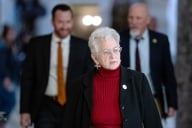You have /5 articles left.
Sign up for a free account or log in.
A year and a half after their last presidential search imploded, Boston University's trustees hope they got it right this time.
The Board of Trustees announced on Saturday that the university had hired Robert A. Brown, provost at the Massachusetts Institute of Technology, as its next president. Brown, 53, a chemical engineer who has spent virtually his entire career at MIT, has a sterling academic background, making him the sort of candidate many observers predicted Boston University might be unable to attact, given its history of governance problems.
In July 2003, the university's board announced that it had offered the presidency to Daniel S. Goldin, the former head of National Aeronautics and Space Administration. He formally accepted the job in August, but he and the university parted ways in October before he had served a day in office, and Goldin walked away with a $1.8 million settlement.
Among the issues in the failed relationship were a continuing sense that the university's longtime president, John Silber, was still a powerful force, and Goldin's apparent concerns about conflicts of interest involving board leaders. The situation gave BU another black eye, and the university's search was held up as a prime example of how not to find a new president.
BU announced a series of governance changes a year ago that were designed to make it easier to attract a new president. They included significant steps like changes in the university's conflict of interest policies and limits on trustees' terms, and more symbolic ones like having Silber move out of his executive office.
The process that ended with Saturday's selection of Brown may not have fully satisfied those who had called for transparency -- for instance, faculty members of the search committee were not elected by the Faculty Council, as the panel had requested, and Saturday's announcement came with little or no advance warning -- but it differed in significant ways from previous searches. The search committee hired Spencer Stuart, an established search firm, considered more than 200 candidates (compared to about 50 in the process that selected Goldin), and created a Web site to monitor the search's progress.
And the search panel did not involve Silber, the former president, at all in the process, the search committee's chairman, David F. D'Alessandro, said in a question and answer forum on the university's Web site.
"We cast a very wide net in this search process,” D'Alessandro said. "Our search committee was diverse and representative. We had an open door policy so that members of the BU community and public-at-large could share their comments and suggestions with us at any time, and hundreds of people responded in person, over the phone, or through the internet or mail. We took our search to public, corporate, and academic sectors and examined senior people at highly regarded institutions. After many months of extensive deliberation, the search committee unanimously concluded that Bob Brown stood alone as the person most qualified to be our next president.”
He added: "He is a rare combination of scholar, teacher, innovator, and someone who has the vision and administrative strength to set a forward-looking tone and agenda for this very diverse, multi-faceted community.
Faculty leaders, for their part, expressed optimism that the university's problems -- and Silber's domination of the institution -- could be over. Roscoe Giles, a professor of electrical engineering and chair of the Faculty Council, said the tide began turning last year when the board made its changes and the interim president, Aram V. Chobanian, "set a completely different tone" by cooperating with the faculty and involving people from across the campus in decision making.
Giles, who is also a faculty representative to the Board of Trustees, did not meet the incoming president until Saturday. But he said he was not troubled by the fact that the search committee did so much of its recent work in secret, because D'Alessandro and the other panel members had solicited opinions broadly early on and warned faculty leaders and others that the search would enter a "closed phase" in which they would "learn nothing." "Because that was outlined for us, it gave people some reassurance," he said.
Even those who make it their business to closely scrutinize administrative goings-on were upbeat. "From everything I have learned about Dr. Brown since yesterday afternoon, I think this is excellent and exciting news," wrote Carol Neidle, a professor of French and linguistics at BU, in an e-mail message. Neidle is a member of the Faculty Committee for the Future of Boston University, which maintains BUWatch, a Web site that monitors governance and other issues.
"This is a great choice and offers us a real chance for a fresh start. Assuming that the new president will, in fact, have the latitude to make the necessary changes, we can hope that the serious problems with governance at BU, deeply rooted and of long standing, may soon be behind us," she added.
MIT officials said BU had made an outstanding selection. "I write to convey the bittersweet news that Provost Bob Brown has been selected to be the next president of Boston University," the institute's president, Susan Hockfield, said in an e-mail message to the campus.
"This is a great tribute to Bob, who has been an extraordinary leader of MIT's academic enterprise. His vision, insight and judgment on an astounding range of issues are unparalleled, and I have benefited enormously from his wisdom and experience as I embarked on the presidency of the Institute. The faculty, staff and students of Boston University cannot yet know how fortunate they are to have Bob as their new leader, but they soon will."









